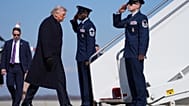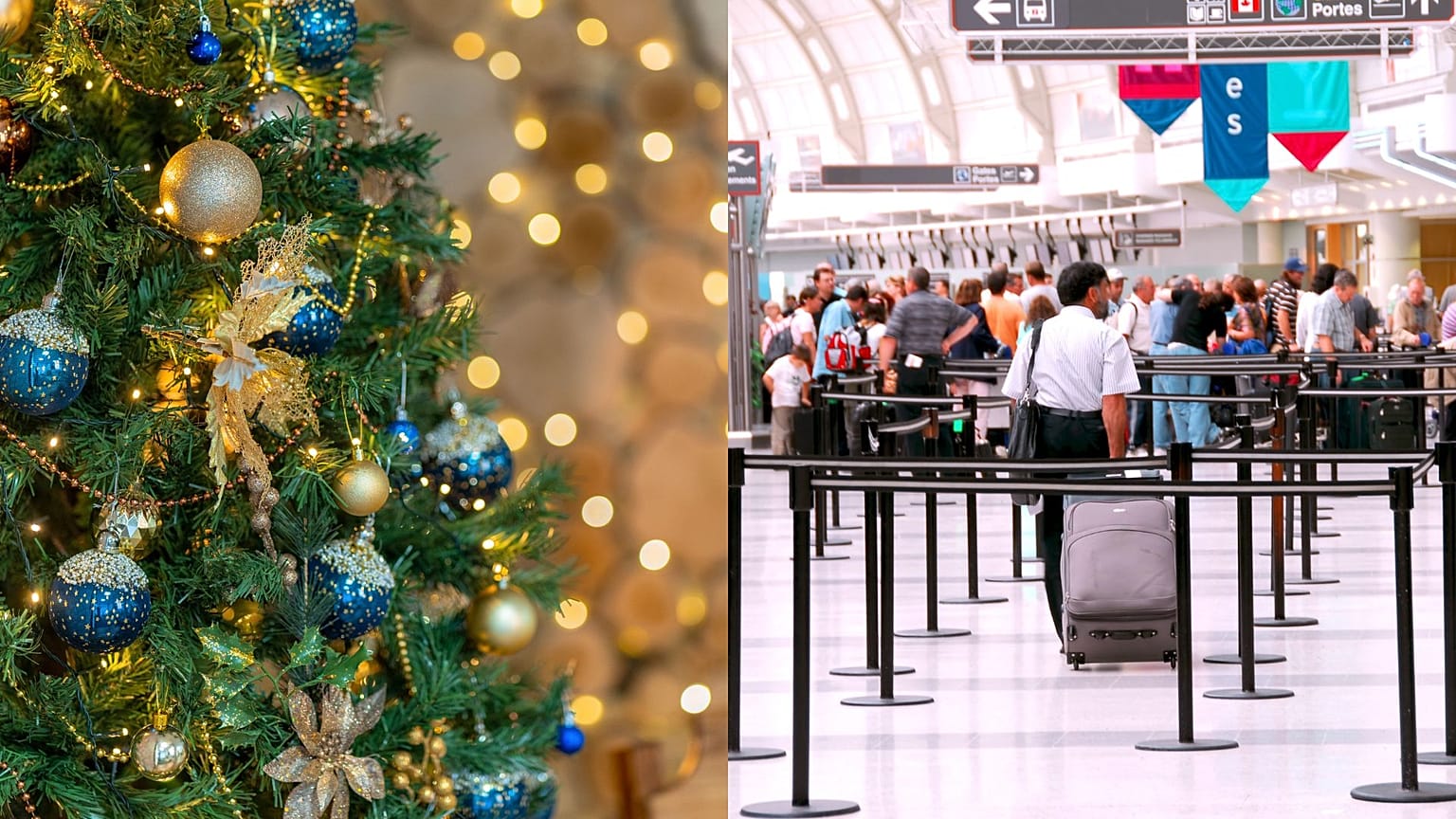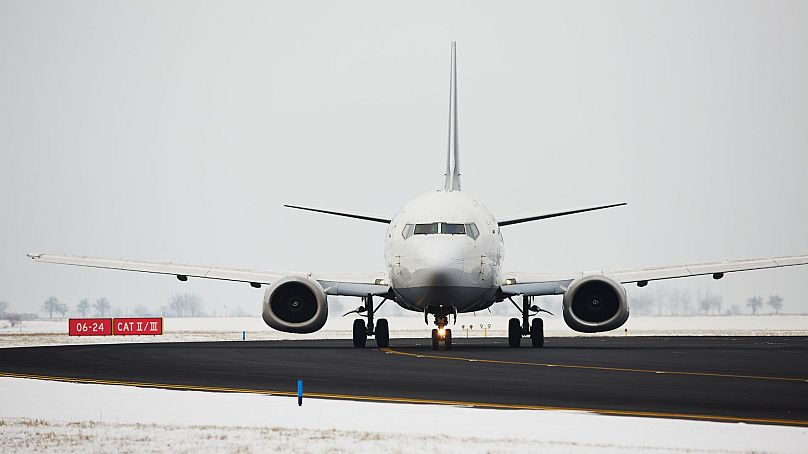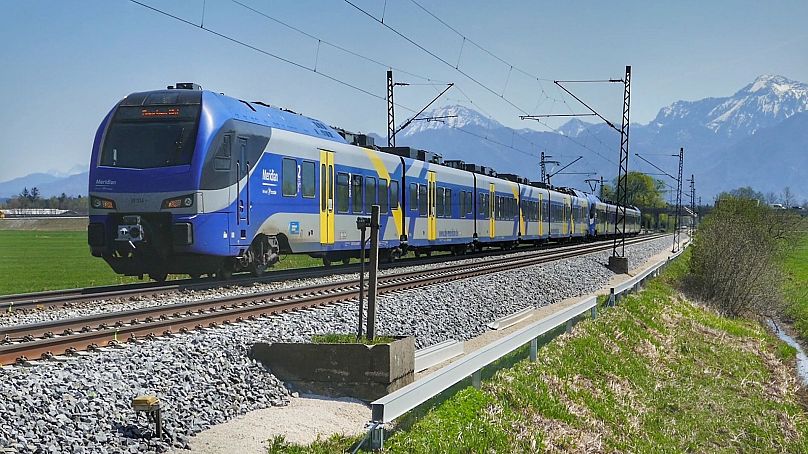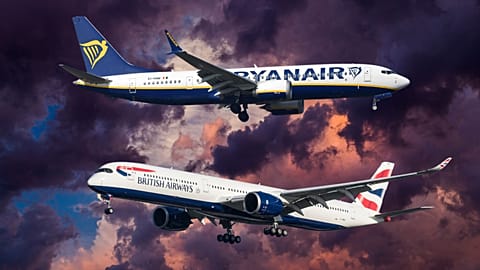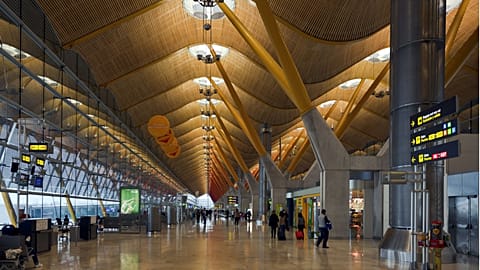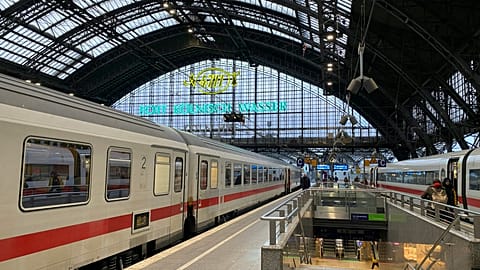Travelling for the holidays can be stressful. Luckily, help is at hand. Euronews Travel spoke to an expert to help you prep for easy travel this holiday season.
‘Tis the season to be jolly - and get to the airport early.
 ADVERTISEMENT
ADVERTISEMENT
 ADVERTISEMENT
ADVERTISEMENT
From last minute present-buying to awkward in-laws, Christmas can be stressful at the best of times.
Travelling for the holidays can compound these yuletide anxieties. With strikes and wild weather predicted, the spectre of cancellations and delays looms large.
Luckily, help is at hand. Euronews Travel spoke to an expert to help you prep for easy travel this holiday season.
“Travelling is quite stressful at the best of times,” says Evan Day, head of EMEA country management at KAYAK.
“Christmas is a particularly busy period.”
Here’s everything you need to know to beat the stress and ensure a smooth journey this Christmas.
What strikes are happening over the Christmas period?
Rail and air travel is likely to be heavily impacted by industrial action during the busy festive period.
Air control staff in Portugal are set to strike, as are Ryanair cabin crew based in Spain and border force officials at the UK’s busiest airports.
Euronews Travel has compiled a list of ongoing strikes; it is regularly updated so check in to stay ahead of new developments.
How early should I get to the airport?
Many of the strikes will impact the time it takes to get to the airport. Plan ahead to avoid delays - and give yourself plenty of time to get to the terminal, Day advises.
“The main tip is quite a boring one: get to the airport early and give yourself plenty of time,” he says.
In most cases, you should arrive at the airport between two and three hours ahead of a flight. Arriving earlier than this can compound queues, as over-eager travellers clog up the departures hall.
However, airports will occasionally amend this advice - for example, passengers at Amsterdam’s beleaguered Schiphol airport were advised to arrive five hours before take-off in summer. Check the website of your departure airport in the days leading up to your trip.
How can I beat long queues at the airport?
There are various ways you can cut down on queueing time. To fly through security, avoid wearing too much jewellery - the metal will set off the scanners - and ensure you’re not carrying any liquids over 100ml.
If you travel with hand luggage only, you’ll be able to waltz past bag drop and collection at either end of your flight.
“If you have the flexibility to travel just with hand luggage, then that can save you a lot of time at the airport,” Day explains.
Alternatively, many airports and airlines offer a fast track pass through security.
“It's not too expensive. You can usually buy it through your airline or your travel agency,” Day advises.
“That just helps you, gives you a bit of peace of mind to just skip the queues when you come to the security gates.”
What should I do if my flight is cancelled over Christmas?
Even the most savvy travellers occasionally face a flight cancellation or delay.
If your flight is cancelled less than 14 days before the scheduled departure date you will likely be entitled to compensation.
Under EU regulations, this amounts to €250 per person for flights of 1,500km or less, and €400 for flights between 1,500 and 3,500km. For all flights longer than 3,500km, it’s €600.
“It's about understanding your options,” says Day.
“In most cases, you'll be given the option of an alternative flight or an alternative route to get you up to where you are looking to go. But if that's not an option, or if that's not convenient for you, then you should always have the option of reimbursement.”
Be careful about the form that this reimbursement takes, says Day.
“Travel agencies and airlines like to … give vouchers because it means that you'll go back and book with them again. One thing we usually recommend is to try and push for a cash refund.”
If you booked flights on a credit card, you may also have the option of pursuing reimbursement through your bank.
What should I do if I haven’t booked my Christmas travel yet?
If you haven’t booked your travel yet, don’t panic, Day advises - there are still some “great deals” out there for those who are willing to be flexible.
“The day on which you travel can have a big impact on the price and also how busy it is in the airport,” he says.
“Unsurprisingly, the days leading up to Christmas and the days in between Christmas and New Year can be the busiest.”
Flying on New Years’ eve itself - when most people will be celebrating - can be a good way to secure a cheap deal. Day also recommends using KAYAK, the online booking platform, to filter out expensive days and tailor the dates and times you want to browse.
What are the best alternatives to flying?
If you want to reduce your chances of disruption - and minimise your carbon footprint - then consider taking the train.
With a rail network stretching more than 200,000km, Europe has plenty of options for rail travellers.
It’s better for the planet, too - according to the European Environment Agency, rail travel accounts for 14 grams of CO2 emissions per passenger mile. Air travel generates 285 grams over the same distance.
Watch the video for more tips for stress-free travel this festive season.

